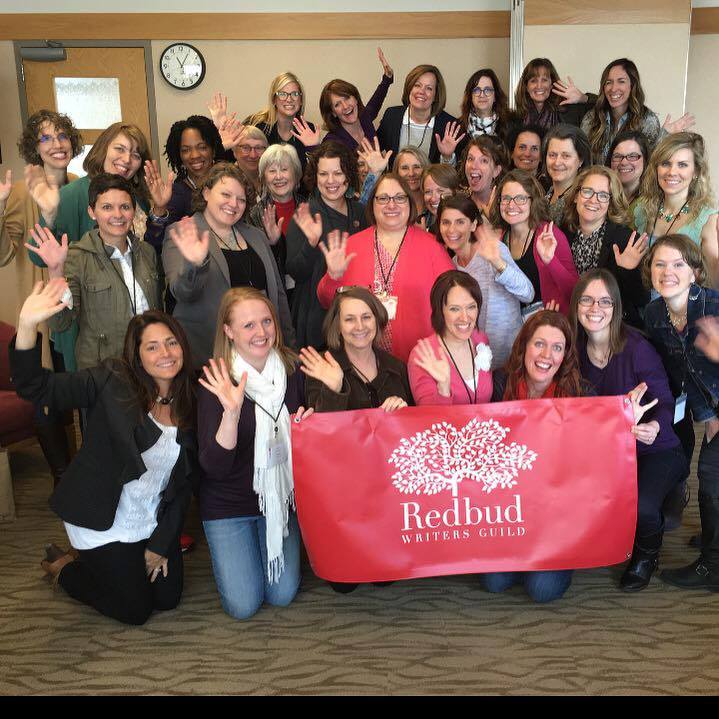This piece of short fiction pays homage to a simpler time when life in summer was spent playing tag in orchards and never once thinking about the time. Special thanks to Julie Lockard whose experiences growing up on a Michigan orchard informed this piece as well as blessed summer days alongside my grandma and grandpa in Door County, WI.

Like most things it started with one. Grandma could never throw anything out. Like every Grandma in America she grew up during the depression or the war or the oil embargo. Some hard time, harder than any other hard time in history when only Grandmothers knew the tricks of survival.
Lipprandt Landscaping began at the end of the driveway in a handcrafted wooden cart, with an asphalt roof. A few dried florals, Empire apple trees and freshly cut Bittersweet in sea glass blue jars filled our stand. We thought it was too pretty to pass up on Highway 57, but people blew by us. My little sister Riva and I played dress up in ridiculous looking prairie dresses and sunbonnets to attract customers. We’d sit out there on weekends, perched atop tall picker stools counting cars. Buick Skylarks. Delta 88s. Ford station wagons loaded down with “turkey” kids, bikes on the back whizzing north. “Turkeys!” Our code word for tourists, we screamed into the tart October air while staring down the license plates trying to figure out where all those turkeys came from. In one weekend we cleared $4.75.
“Olivia, why is no one buying these trees? Who wouldn’t want an apple tree to keep their family going?” Grandma wondered as we packed up the farm stand for the night. “Well, it’s the end of the season so girls, you get to help me plant ‘em.” Grandma handed each of us a Little Pal shovel and gazed out to the western stone boundary wall. By 6:30 p.m., after planting five trees, Lipprandt Landscaping became Lipprandt Orchard. It grew over the next twenty years to thirteen acres, and four varieties of apple trees. While I attended Marquette University, Grandma and Grandpa became experts in “orcharding.” Crabapple trees encircled their creation like a snowy wreath in springtime because bees love them and that speeds up pollination. It takes more than trees to be a successful orchard grower.

Our Apple Delight machine allowed visitors to smother their picked apples in caramel and a choice of crushed peanuts or hazelnuts. Cleaning up the concrete floor beneath this gooey apple coater put Grandpa in the Maritime Clinic twice for herniated discs. After a few years, apple themed knick-knacks littered the shelves. Folks bought the ugliest dried apple-faced cornhusk dolls, decked out in miniature calico aprons, sewn by Grandma on her Singer. Apple sauce, apple butter, apple fritters, apple pies, apple Christmas ornaments.
“Bess, how ‘bout an Apple Tilt-A- Whirl ride?” Grandpa asked. “No, we’re keeping this place natural. Nothing they can get in the city at Lipprandts.” Grandma shot back. One fall break I arrived in my little Pacer coupe and tried to pull up to the farmhouse, but a traffic cop in blaze orange shooed me over to an empty field parking lot across the road. Things were getting big and I wondered how Grandma and Grandpa could keep it going.
Every year, right before Halloween, we gathered around the dining room table for “Harvest Dinner.” This family tradition began when Grandma announced that cooking the Thanksgiving meal felt anti-climactic so long after harvest season closed. Now almost twenty, I’d graduated from the kids table to the adult circle expecting enticing conversation to twist along the lines of Nixon’s Watergate scandal and the upcoming bake sale at Saint Paul’s Lutheran. Instead, Grandpa, who rarely said a word while sawing through his Honey Baked ham, cleared his throat and picked up a toothpick.
“Kids, it’s gettin’ to be too much,” he said while working the toothpick around his canines. “The orchard is too much work for Bess and I to keep up so we’re inviting one of you to think about moving back home and helping out. Our hope being that one of your families would eventually take it over.”
Grandpa bit down hard on the toothpick and spit the wooden shards into his trembling hand. One by one adults set down their forks and sat up straighter. Their cigarettes extinguished hard into Green Bay Packer ashtrays.
Mom spoke first. “Dad, Jeff just started his new job in Neenah and we’re getting settled in. I’m thinking about taking a job as a paralegal now that Olivia is at Marquette.” Her sympathetic glance across the table forced me to look away.
I wanted to yell, “Mom, Riva and I planted those trees out there, how can you say no?” But, being new to the adult table I kept my mouth shut.
Uncle Bob, the oldest brother in the family, went next. “Dad, you can’t be serious. Leave my job with Ernst and Young, my partnership, to come up here and prune apple trees and clean up the Apple Delight machine? I can barely get up here for Harvest Dinner. The firm is really growing and I’m a big part of the success in my division.”
I saw Aunt Lois give his hand an appreciative squeeze under the table. We all waited for the one possible “yes.” The youngest of the three, my Uncle Pete.
Uncle Pete made it his own tradition to show up for Harvest Dinner dressed in full camo, counting the days until deer season. When he finished at Sevestapol High he took a job apprenticing for a local wood carver. He never wanted to leave the county.
We all suspected it was because of the loss of Benjamin, the baby in our family who was only three years younger than Pete. We still don’t know exactly how it happened. “When Pete’s ready to talk about it, he will.” Mom once told me. Aunt Lois whispered one Sunday afternoon while drying the dishes that the accident involved the tractor and the harrower. Arm chills crept over me just thinking about it because the harrower is covered in long, sharp spikes.
“What do ya think, Pete?” Grandpa asked.
Like most youngest, Pete leaned way back in his chair to the tipping point and grabbed hold of the brim of his hat. He took in a deep breath and rocked forward, pushing the china plate near the stacked apple centerpiece. Folding his hands deliberately, like he’s about to pray,
“I don’t think I can Dad. I’m sorry. Things are real busy down at the wood shop.” Uncle Bob, the accountant snorted in disbelief that a woodshed could actually be “real busy.” Uncle Pete shot him a dagger look.
“Well, we have our answer then. We’ll talk to Betty Wilsee about putting the orchard on the market tomorrow.” Grandma pushed away from the table, and cleared the dishes with an extra loud clatter. Grandpa picked up another toothpick.
After the orchard had been on the market for a year we came to believe that all the potential orchard owners were young couples in their early twenties with beards and braids tied in yarn ribbon at the ends. They wanted to leave behind the “rat race” and “live off the land,” but they didn’t know the difference between an Empire and a Johnny Gold. During the fall of my junior year at Marquette, I received an invitation from Grandma and Grandpa written in pristine green ink.
Join us at Lipprandt Orchard and help bring in the last crop.
All Apple Delights on us. October 21st, 1975.
Midterms presented a conflict, but my psychology professor granted an extension so I packed up the Pacer and spent three hours on the road wondering who bought the orchard.
Turning right onto Germantown Road I was surprised to see the empty parking field. Usually a few straggler pickers gleaned their way through the orchard before Halloween. A strong odor like burned apple pie juice on a cookie sheet wafted through my car vents as I pulled into the driveway. Half drawn bedroom shades covered the windows at 3:00 in the afternoon. Could Grandma be taking a nap? Somewhat relieved, I saw my sister’s car and the tractor alongside the barn, but where was everyone else?
As I climbed out of my car in the gravel circle behind the farmhouse, a path of black death stretched out before me extending all the way out to the boundary wall. Every tree stump, a charred tombstone, about the height of your hand. I breathed in the ashy air. Grandpa was the first one to come out.
“Well Olivia, there it is, twenty years of work. We wanted you and Riva to see it first because you planted the first trees. We couldn’t find a buyer. No one really wants to work an orchard these days. They just like the idea of owning one. The county environmental control told us to burn it or decaying trees might be overtaken by a fungus and kill off everything else. Whatever that means, I’m not so sure, but burning is clean and it allows everything to start over from scratch.”
I could feel the sharp wind burning my tears as I looked out on smoldering teepees of leftover trees. Grandma and Riva came down off the porch and joined us at the wall of what was the Granny Smith corner. When you plant a tree with another person there is a sacred, silent trust you share. Riva and I wove blossom necklaces, played hours of hide and seek in their shade. We gave several trees names from our favorite story characters: Dickon. Mary Lennox. Madeleine. Miss Clavel.
Bending over to grab a handful of charred ground, Riva crushed it between her polished fingertips. “Why didn’t you tell us? Olivia and I would have left school to come and help you on weekends.” Grandma reached out her hand and drew Riva’s sadness into her large aproned chest. Comfort blanketed us as the strong arms of our grandparents held our aching hearts. My baby sister knew and I knew that our orchard days and Harvest Dinners were over. College responsibilities called, applications for internships needed mailing.
With one more look to the western boundary wall, Grandma saw a hope that neither of us could see. It was her art, making something beautiful out of nothing. “We saved each of you a bag of the best Johnny Golds that we picked before the crowds came. Let’s go in and make a cobbler. Remember, don’t look back. It’s bad luck.”
Inside their cozy kitchen, Grandma handed me a flour sifter and Riva reached for the apple peeler coring machine that belonged to our great grandmother, June Rose. We took turns threading Johnny Golds onto the stem and turning the crank, forever marveling at the long twisted peel left behind. Once a necklace, today we let it fall to the ground.










 On a sweet summer night in 2015 my hubby and I were sitting on the patio talking about the transforming work God has done in our lives which led to us chatting about how God has transformed the lives of many folks we know. He casually mentioned, “You know that writing guild you are part of must have some pretty incredible stories of transformation.” I thought to myself, yep and it would be fun to know some of those stories. The next night happened to be our quarterly Redbud Board conference call and at the very end of the agenda I threw out the idea that maybe we should do a book about how Christ has transformed us as writers. The response was milky, lukewarm as in “Hmmm, interesting. Let’s think about it.”
On a sweet summer night in 2015 my hubby and I were sitting on the patio talking about the transforming work God has done in our lives which led to us chatting about how God has transformed the lives of many folks we know. He casually mentioned, “You know that writing guild you are part of must have some pretty incredible stories of transformation.” I thought to myself, yep and it would be fun to know some of those stories. The next night happened to be our quarterly Redbud Board conference call and at the very end of the agenda I threw out the idea that maybe we should do a book about how Christ has transformed us as writers. The response was milky, lukewarm as in “Hmmm, interesting. Let’s think about it.”


